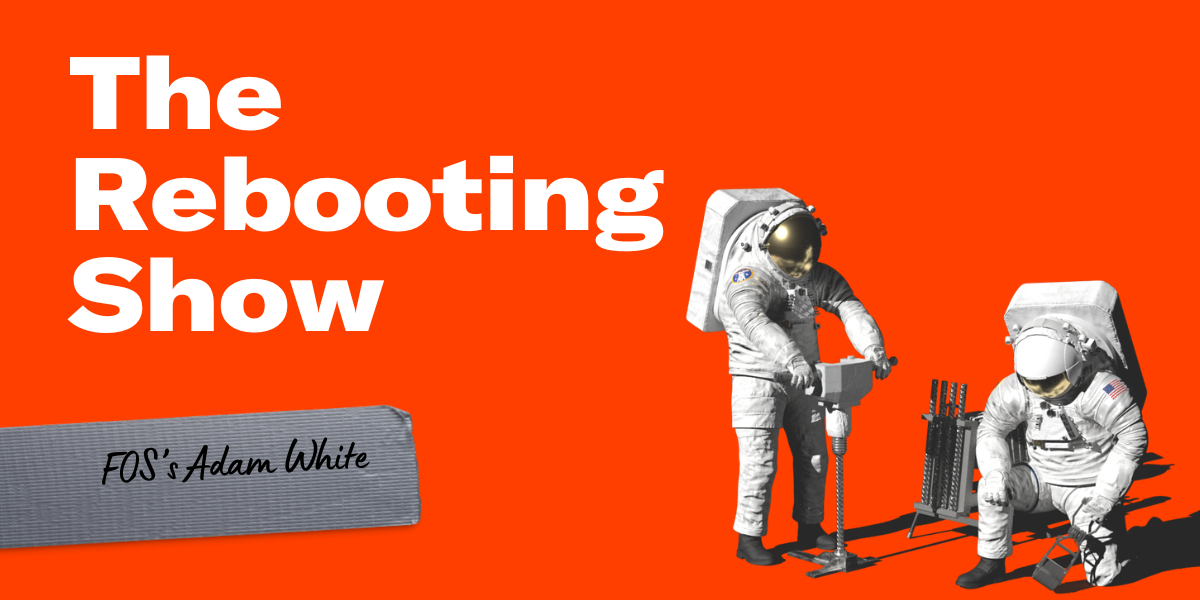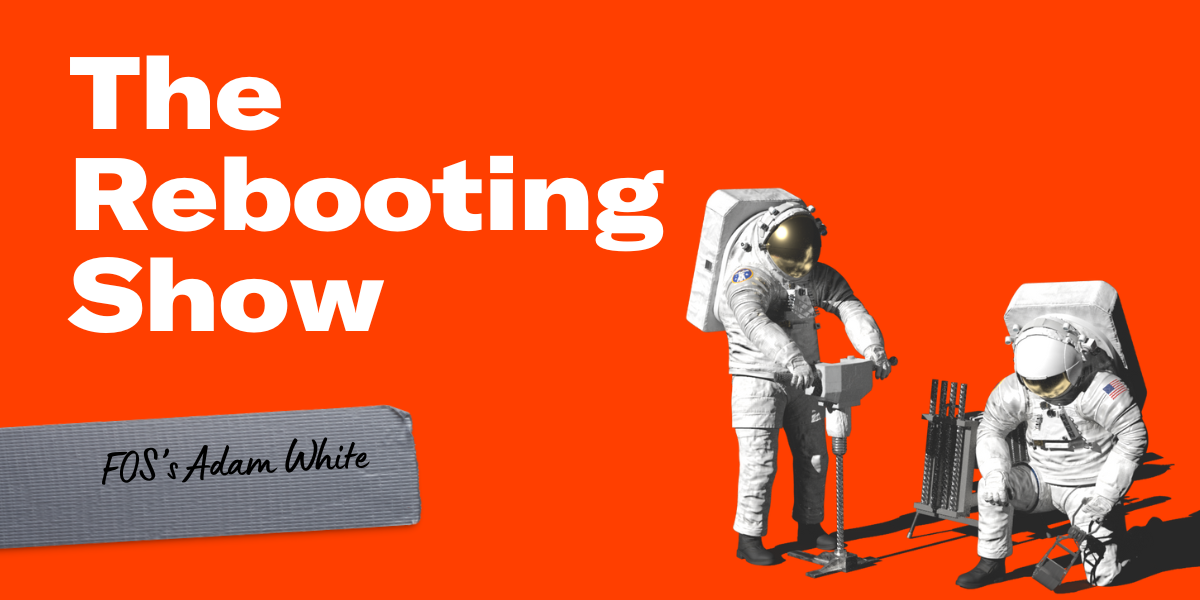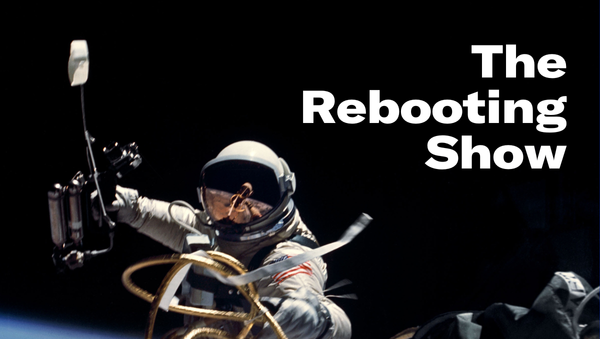How Front Office Sports took a prosumer approach to $10m in revenue

In today’s issue:
- A conversation with Front Office Sports CEO Adam White about the path from a Squarespace built when he was a college student to building a $10 million publishing business
- Notes on a coming backlash to legalized sports gambling, Substack’s moat, the latest version of The Daily Beast, and The Washington Post’s SaaS struggles.
Reminder: Sign up for TRB Pro to receive access to all of The Rebooting’s content as well as invitations to events, preferred access to our private dinners and soon access to a texting community.

On this week’s episode of The Rebooting Show, I spoke with one of my favorite media entrepreneurs, Adam White, the founder and CEO of Front Office Sports, which is carving a niche in a very competitive area by using business as a lens rather than gong hard-core B2B or mass-reach consumer.
Sports makes sense as a category for a flavor of prosumer publication. FoS is on track to break $10 million in revenue this year, with backing from Jeff Zucker’s RedBird IMI has been on an expansion spree. Adam and I discussed his path from FoS as a college project to a business, and the fits and starts of expansion.
Front Office Sports started as a classic B2B publication, a more modern version of Sports Business Journal and without a paywall. But the dynamics of the sports market – there isn’t that big of a clearly defined buy and sell side – led Adam to position the brand differently. After going down a false path of building out consumer-focused newsletters, FoS found its stride by not trying to be a narrow trade publication but instead take a business angle to sports.
Some of the topics we covered:
- Why investing in creative strategy is critical to break through with big brands. “It's a bit of a cost that you have. But if you want to uplevel and start to sign major brands, that's the expectation."
- The “faces and franchises” approach. “ESPN is an amalgamation of faces and franchises. You have ESPN, but ESPN, the parent brand is made up of a bunch of franchises. These are all franchises that ESPN have built inside of the main parent brand that they sell to advertisers."
- The limits of built-if-sold projects. “Most of the business today has been built if sold, which is fine, but it increases your costs and limits the performance because you don't know [if it will work].”
- The decision to put off subscriptions. “We just haven't gotten there yet. And the business has been supported well enough from an ad side of things. It’s been a huge competitive advantage because we are just fully free."
- Finding competitive differentiation when competing with far larger companies. "We offer a lot of brands the ability to get into sports in a cost-effective way. The ability for us to do $250,000- $500,000 deals – you're not going to even sniff any part of ESPN for that amount of money.”
Listen to the full episode on Apple | Spotify | other podcast platforms
Partner with The Rebooting
The Rebooting works closely with companies that sell software and services to leading publishers, both B2C and B2B. We take an audience-based approach that starts by matching a partner's ICP to our audience segments, then create programs to drive verifiable business results. We do that across thought leadership/branding, lead generation and in-person activations. We work backwards from client goals rather than taking a Canal Street approach of hawking whatever product we have on hand.
So far this year, we've worked with partners like Outbrain, EX.CO, BlueConic, WordPress VIP, Permutive, Impact, 1440, House of Kaizen, Viafoura, True Anthem, Affinity Global, LiveIntent and our newest partner NOTA.
Get in touch to discuss programs for the rest of the year and for 2025.
Notable
- The Rebooting is supporting Stagwell’s Future of News initiative. This is a needed program to support the creation of a sustainable news ecosystem.
- Legalized sports gambling is getting needed attention. I have long been uneasy with the legalization of sports betting, especially when combined with the dark arts of mobile apps that have already addicted society. The evidence is starting to come out about how ruinous the downsides have been. Sports publishers have grown dependent on sports books, and restrictions on their advertising will hit hard.
- Leaving Substack is hard to do. I appreciate the honesty of Casey Newton’s four-year anniversary post, in which he lays out the mixed results from Platformer leaving Substack over its Nazi content policies. Substack has undoubtedly created network effects that are hard to quit, as Platformer’s growth has slowed materially since its departure for a roll-your-own approach. The upside to that tradeoff and all the headaches of handling the tech yourself: autonomy. More on this on my own four-year anniversary report, which is coming up in a couple of weeks.
- The Daily Beast’s latest iteration. The Daily Beast has gone through several identities in its nearly 16 years of existence. Its latest, under Joanna Coles and Ben Sherwood, is trying to find a lane as a high-minded tabloid. The IAC-backed publisher is betting on big names and buzzy coverage of Barron Trump will support a sustainable model. My concern would be it gets caught in the middle with a high cost base to boot. Some of this is generational. Big names tend to be expensive. Gawker was a good business in part because it found great writers early in their careers, not on the back nine. And a subscription model is difficult to pull off for these kind of brands, because the sheer volume of similar free content is too great. I’m not sure there’s a lane between The New Yorker and The Daily Mail.
- Arc’s reset is a warning. As Dotdash Meredith boss Neil Vogel has told me several times, if a publisher tells you they’re a technology company, run away. The track record bears this out. The Washington Post’s tech arm, Arc XP, which offers a CMS and publishing tools to other publishers, cut 25% of its staff. This is a needed reset for a simple reason: The customer base for Arc XP is going through a painful period of adaptation to new economic realities. There was a time when many publishers had enterprise tech dreams. Most retreated. Arc XP is in a unique position with Jeff Bezos as owner of The Washington Post. The challenge of these businesses is they often get bogged down in services that cut into the fat margins expected of SaaS companies.
Thanks for reading. Send me feedback by hitting reply.




